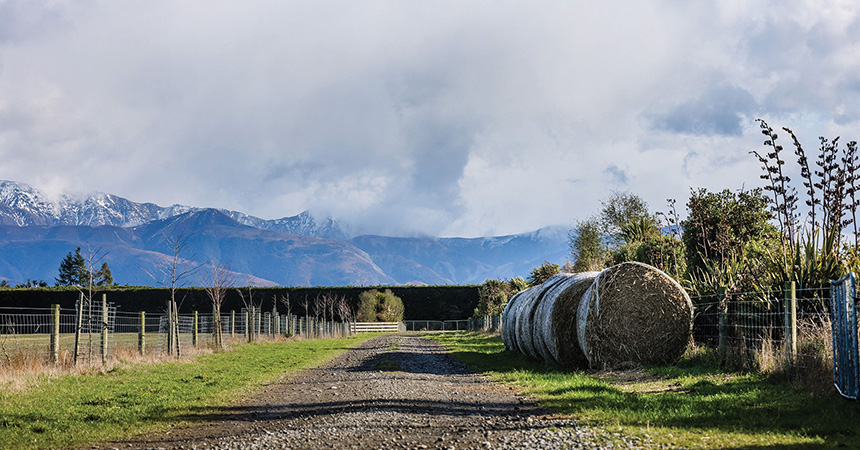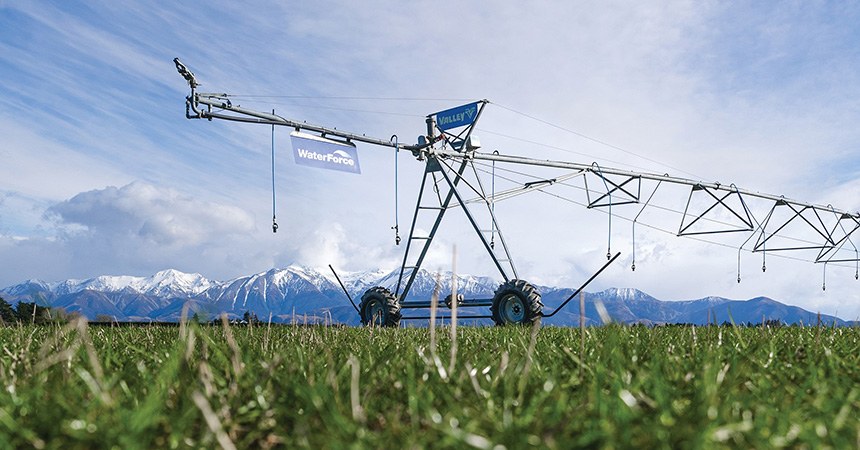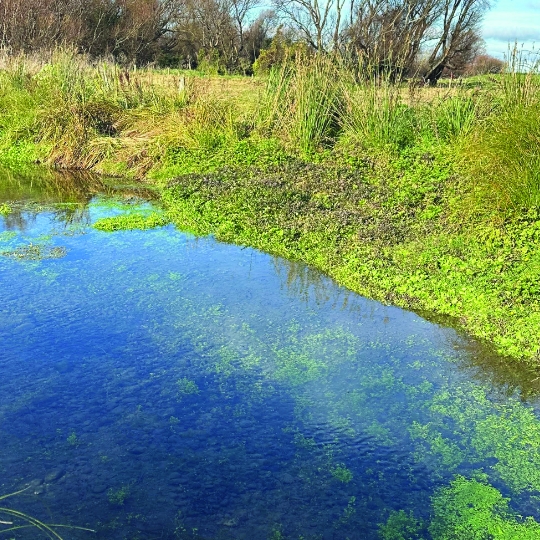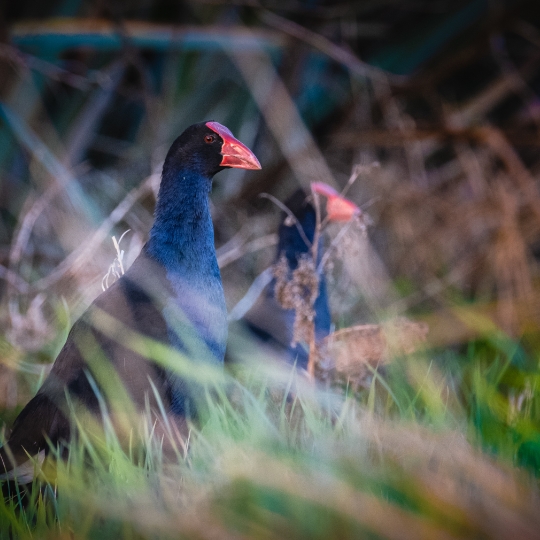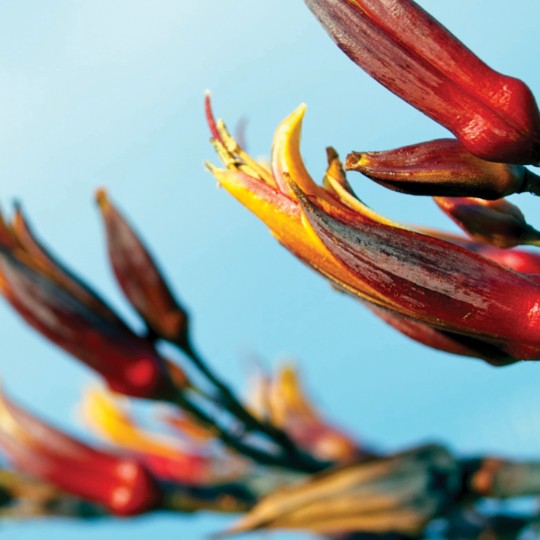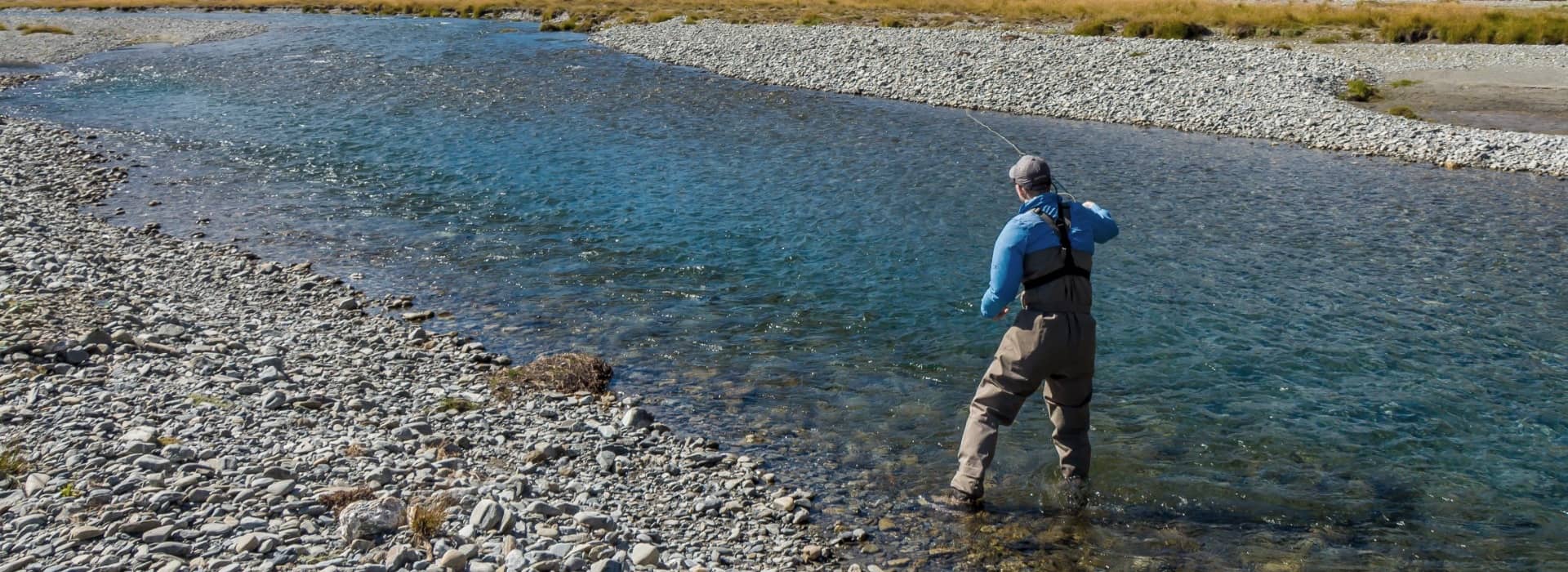

Annat Farms Ltd, Sheffield.
Food is the global currency that connects us
Mixed arable farming is at the core of Canterbury’s agricultural history, contributing to the country’s food security and economic growth while delivering resilience to rural communities.
Father and son farmers Stuart and Simon Wright farm 435 hectares on the western Canterbury Plains at Sheffield, on the southern bank of the Waimakariri River under the shadow of the Southern Alps. With fertile soil, a temperate climate and now irrigation, this intergenerational farming family grows arable crops, finishes lambs, grazes dairy cows and produces seed potatoes for New Zealand and overseas markets.
Resilience on farm.
In 2017, the Wright family joined the CPWL irrigation scheme. ‘Irrigation not only improved our yield reliability but enabled us to transition towards crops that have a higher economic value,’ says Stuart. ‘The added bonus was that with more certainty of yield, we were able to lower our environmental footprint as our inputs closely matched our expected production. That’s the certainty water gave us.‘
Simon adds, ‘Just as importantly, the potential increased yield from irrigated land unlocked growing contracts for crops which were not available to us as dryland farmers, resulting in a more sustainable farm income.‘
Best practice on farm.
From the outset, Stuart and Simon have been proactive in implementing best practices in on-farm management. A lot of planning goes into crop rotation — managing which crops are grown where and when — and where livestock fit in.
Stuart explains, ‘The land never stays still for too long. With water, we can grow crops successfully without the ongoing worry about when rain may arrive. We grow staple cereal crops like wheat, barley and vining peas, and seed crops such as ryegrass, carrots, radish, mustard and white clover. We also produce seed potatoes for the New Zealand market, and export some to Fiji as well. For animal-consumption feed, we grow kale and oats and graze our ryegrass crops both pre and post-harvest. Much of our straw is baled for feed on the farm, or sold.‘
Sustainability on farm.
Dual-purpose crops, such as white clover, play a crucial role in crop rotation and soil nitrogen correction on the farm. White clover fixes nitrogen in the soil, enhancing total pasture production by improving soil fertility while minimising the need for synthetic fertilisers. Other crops serve similar purposes, maximising resource efficiency and promoting soil health in a circular, sustainable system.
Growing safe, and nutritious food.
Stock are crucial to the business and are incorporated into the arable rotation. Up to 6,000 lambs are grazed through the winter, and dairy cows are grazed in June and July. The animals contribute to improving soil quality through adding organic matter (via manure and urine) and recycling harvested straw back onto paddocks. These vital nutrients help the crops to grow and support microbial organisms that keep the soil healthy.
Successful wintering systems require thought and planning, and good management practices are needed to reduce the risk of nitrate leaching through animal urine. Stuart explains: ‘Wheat is normally planted after kale crops when the stock has moved on. Wheat can access nitrogen via its root systems to over one metre in depth. Deep-soil nitrogen tests quantify the amount of nitrogen in the soil available to the plant and we then make a simple calculation of potential target yield, available soil nitrogen, available water via irrigation and any extra synthetic nitrogen needed to reach that target.’
Natural ecosystems.
When the pivot irrigators were installed on the farm, Simon took the opportunity to remove all the pine shelter belts on the farm. His efforts to increase wildlife biodiversity through an abundance of insect pollinators in shelter-belt plantings have certainly paid off, with over 8,000 mixed native plantings in place across the farm. ‘We have created areas that are rich in beneficial insects, and we’ve seen an increase in native birds on the farm — fantails pīwakawaka, grey warblers riroriro, bellbirds korimako, and silver eyes tauhou are regular visitors, and we occasionally see white-faced heron matuku moana and hear shining cuckoo pipiwharauroa’.
The farm is part of a Canterbury-wide project to provide native plant corridors from the mountains to the sea, through an increase in native biodiversity plantings. Part of the funding for this has been provided through access to the CPWL EMF grants.
A nod to past generations.
The Sheffield community marked 100 years since the end of World War One by planting an oak tree for each of the 20 soldiers from the Sheffield area who lost their lives in the war. The oaks were grown from acorns collected from Christchurch’s ‘Gallipoli Oak’, which was grown from an acorn sent home from the Gallipoli battlefield by local soldier Lieutenant Douglas Deans in 1918.
Stuart recalls, ‘Dad’s uncle was killed at Gallipoli, so we purchased oak trees from the Gallipoli Oak project and planted them on a lane on the farm. We are pretty happy to have them there.‘
A changing landscape.
Seed-potato production on the farm produces high-quality seed potatoes for New Zealand commercial growers for the fresh market and crisping sectors.
‘Producing high-quality seed potatoes is integral to the New Zealand potato industry,’ says Stuart. ‘Production starts with significant upfront costs to produce a product that is virus free and has plenty of seed vigour. The Sheffield area has traditionally been known for producing quality seed, but escalating production costs have prompted many growers to move out of seed production. There are now only four growers operating in our area, and they all use irrigation.‘ He adds, ‘The potato is the third most important food crop after rice and wheat in terms of human consumption, and global demand for processed food the market of fresh potatoes, chips and crisps is only growing.
The cost of farming.
In a nutshell, farmers are facing ever-increasing challenges and there is a growing disconnect between farming and the food we buy. Supporting farmers means more than just buying local produce — it means recognising the importance of the vital role they play in society by ensuring New Zealand’s food security.
Stuart, Simon, their families and their team have worked hard to future-proof the farm, continuing the legacy of earlier generations. The Wrights tread lightly on the land, employ locals, and turn up for their community. It’s a brilliant story to tell. As Stuart says, ‘ I knew water would make a difference, but I can’t believe how much of a difference it has made.‘
